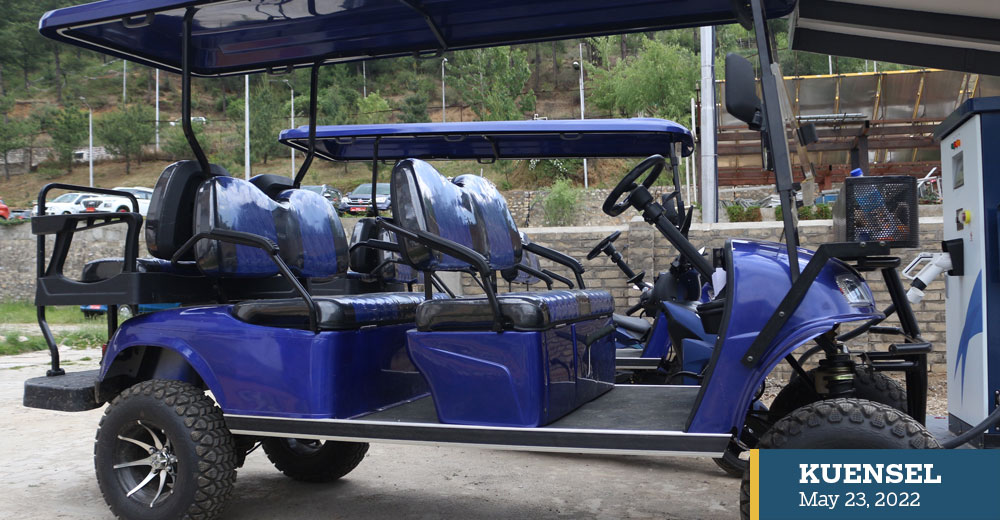Phub Dem
Emphasising the importance of research and development to build technology and create an innovative ecosystem in Bhutan, Druk Holding and Investments InnoTech with Shado, a global company that provides electric vehicle technology and charging infrastructure, unveiled the assembled electric golf carts and scooters.
The proof of concept (POC) project is a part of DHI’s Electric Vehicles (EV) and an applied research and development initiative.
Proof of concept (POC) is evidence obtained from a pilot project, which demonstrates that a design concept or business proposal is feasible.
According to DHI InnoTech director, Ujjwal Deep Dahal, the idea of assembling the EVs is to encourage and motivate the entrepreneurs and curious problem solvers in the country besides testing the technology.
He said that mobility needed rethinking and there are opportunities to create that platform for young minds to reimagine innovative mobility.
He said the InnoTech team aspires to build solutions to problems and test critical technologies, adding that assembling the simple EV provided confidence to the team to venture into designing and building EVs and gearing towards a utility platform building ecosystem.
“As InnoTech works on various PoC projects, we hope to create a linkage and collaboration amongst industry, academia and the government in developing sustainable ecosystems for innovation – the long-term driver of economic growth,” he said.
During the POC phase, the team assembled two units of electric motorcycles, and two units of electric four-wheel golf carts and used a high-power charging system to demonstrate the viability of UCs as the battery power source for commercial EV infrastructure.
For the next phase, InnoTech has plans to bring in external consultants to work with the DHI team for a year to design and engineer the Carbon Emission-Based Vehicle Scheme (CEVs).
The team will select and design the equipment necessary to build a low volume production factory to produce up to 1,000 CEVs per year.
Unlike the usual EVs, the ones assembled recently use ultra-capacitor batteries. The batteries offer fast charging ability, superior low-temperature performance, longer service and long life according to analysts with InnoTech.
For the research and development of EVs, InnoTech will focus on the adoption of ultracapacitor technology.
Ujjwal Deep Dahal said that the assembled EVs would be used for data collection to study the performance of the motor and the UCs including mechanical and electrical testing of the current design.
“We encourage all interested individuals to visit DHI DRIVE centre, InnoTech at Thimphu TechPark to understand about the technology and for any research collaborations,” he said.
Furthermore, InnoTech plans to engage and work closely with local colleges and research institutes to create human capacity in the fields of robotics, Artificial Intelligence or Machine Learning, the Internet of Things, and autonomous EVs to create products tailored to Bhutan’s unique landscape and requirements.
Meanwhile, the EVs assembled at Thimphu TechPark, the golf carts and scooters by the InnoTech team were tested on the road for performance from Thimphu TechPark to Norzin Lam earlier this week.


